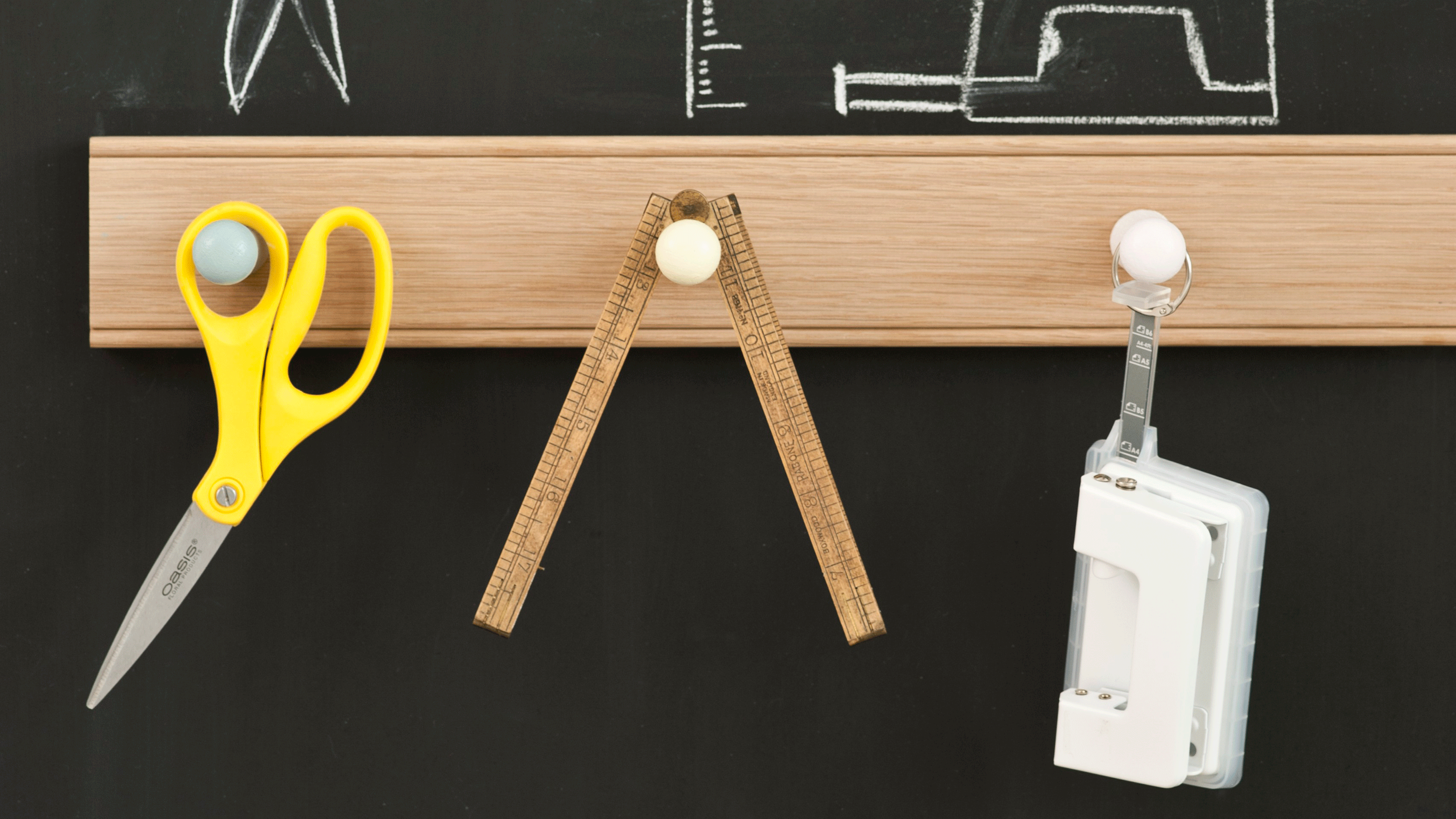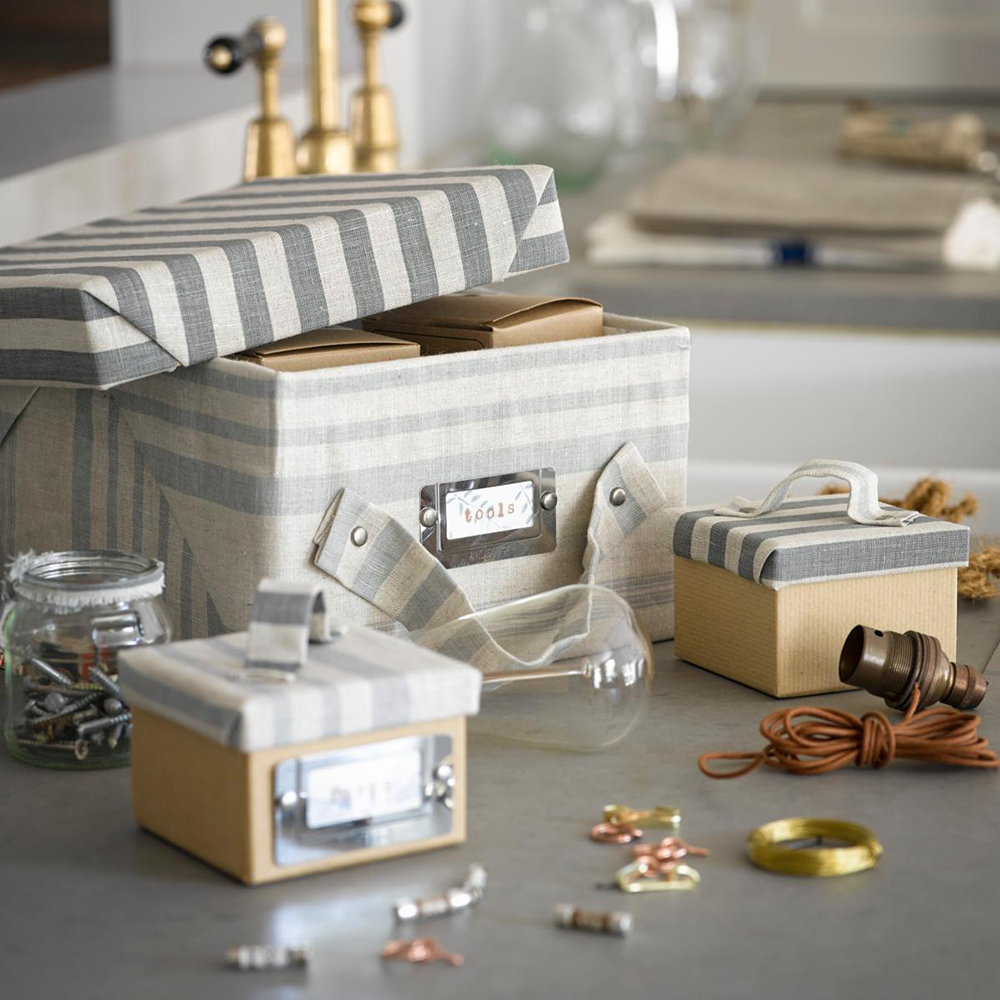The proper etiquette when you have tradespeople in your home - according to the pros themselves
It can be an odd situation, but here's how to navigate it so that everyone is happy


Sign up to our newsletter for style inspiration, real homes, project and garden advice and shopping know-how
You are now subscribed
Your newsletter sign-up was successful
Hiring a tradesperson to complete a job in your home – be it fixing squeaky floorboards or painting a kitchen – can sometimes be an awkward situation to navigate. While the person is there simply to do their job, sharing your space with a stranger for hours on end (and possibly, days), means that knowing the proper way to interact with one another can be somewhat of a minefield.
Should you ask if they want a drink immediately? Or do you wait until they’re settled? How much should you chat to them? Should you tip them? Though these questions may sound inconsequential, they are thoughts that many of us have likely had over the years.
As such, we though it was about time we get into the nitty-gritty of the etiquette you should observe when hosting a tradesperson in your home – to ensure that everyone is happy and on the same page.
How to navigate a visit from a tradesperson
Firstly, we’ll start by saying that clearly, tradespeople - be they plumbers, handymen, electricians, or similar – are obviously just people. And while there are absolutely some unreliable tradespeople out there (as there are in every industry), there’s no need to be anxious about welcoming them into your home.
However, we reckon that it’s good manners to know the proper etiquette for systems such as tipping and taking care of people when they are working directly in your home.
So what do the people who actually do the job think when it comes to these interactions? New research from Toolstation revealed what actual tradespeople prefer when working in your home – from your working relationship, to the dos and don'ts of snacks.
That said, Ben Fish, Electrical Project Engineer at Lowe & Oliver, explained that getting the job done right is always their top consideration. 'The most important aspect of any relationship between a client and tradesman is achieving the desired works within the client's budget, and managing their vision to achieve the works required professionally and efficiently,' he said.
Sign up to our newsletter for style inspiration, real homes, project and garden advice and shopping know-how

So aside from that, what do tradespeople reckon is the proper etiquette for chatting whilst they are working? The Toolstation research revealed that the large majority of tradespeople are completely happy to have a chat with a client, with 71% agreeing on this.
However, 7% of those surveyed shared that they would rather not talk whilst working - which is understandable!
Ben expanded, saying, 'If the client wants to have a short chat, then we're happy to oblige, but within reason. We are on the premises to get the work done.'
When it comes to refreshments, there was pretty much unanimous agreement within the survey that a beverage is always very welcome.
95% of tradespeople asked said they would like to be offered a drink during the day – with three-quarters of those (perhaps unsurprisingly) preferring a cup of tea. However, 36% of those surveyed revealed that they wouldn’t want to be offered any food.

One very common uncertainty when it comes to the etiquette when working with tradespeople, is the expectations around tipping. So do trade professionals generally expect a tip after finishing a job in your home?
The study reveals that most trade workers never expect to be tipped, with 92% agreeing with this. In fact, one in 20 share that they have never received a tip.
Ben confirmed, 'Tips are absolutely not expected – but of course, as mentioned, a cup of tea and a biscuit here and there are much appreciated!'
Finally, one of the most important things when it comes to completing a project – be it a renovation job, or a simpler job like addressing the signs of a leak – is that both client and worker respect each other's space.
Ben explained that in order to get a job done properly, you should ensure that the workspace is easy for tradespeople to navigate. 'Planning and communication is vital as it eliminates the risk of disturbing work and disrupting the project,' he said. 'If any area needs to be cleared out for lifting floors or other tasks, a messy site will slow the whole project down, which is a result nobody wants. It doesn't have to be spotless, but clear from any obstacles and obstructions.'

Amy Hunt is an experienced digital journalist and editor, now working in a freelance capacity specialising in homes and interiors, wellness, travel and careers. She was previously Lifestyle Editor at woman&home, overseeing the homes, books and features sections of the website. Having worked in the industry for over eight years, she has contributed to a range of publications including Ideal Home, Livingetc, T3,Goodto, Woman, Woman’s Own, and Red magazine.